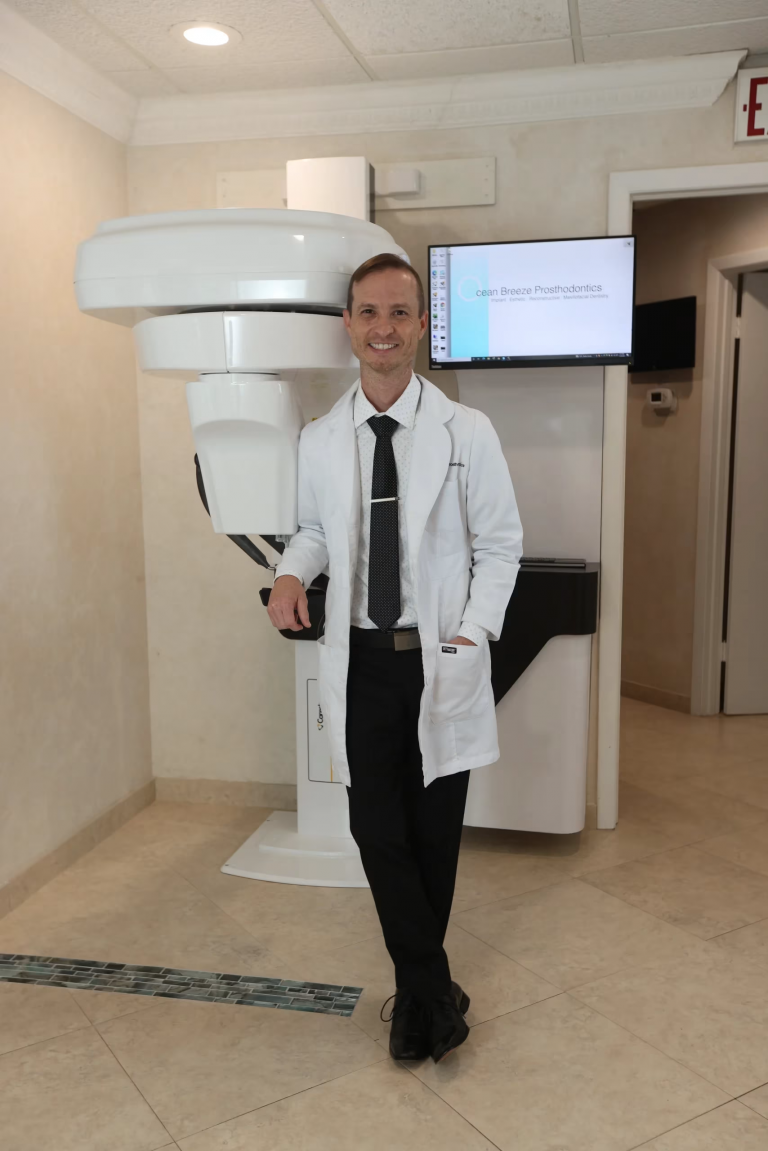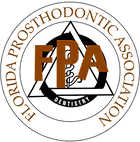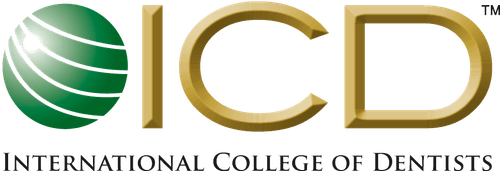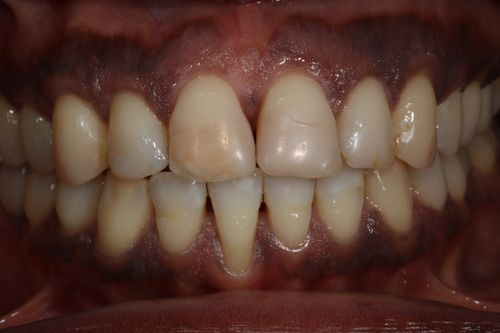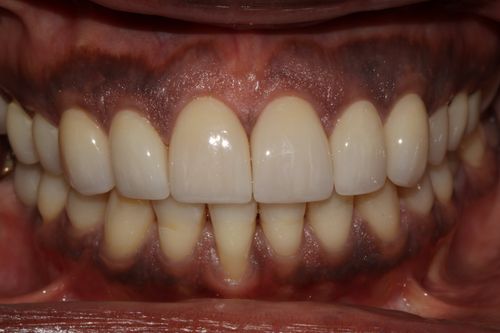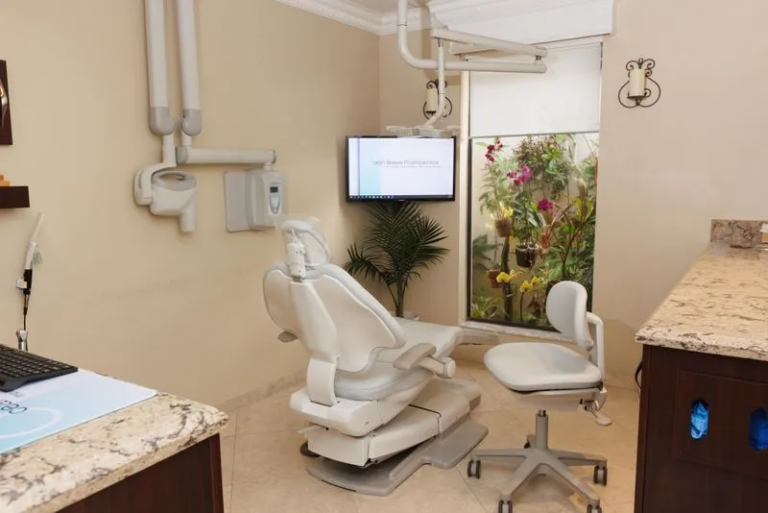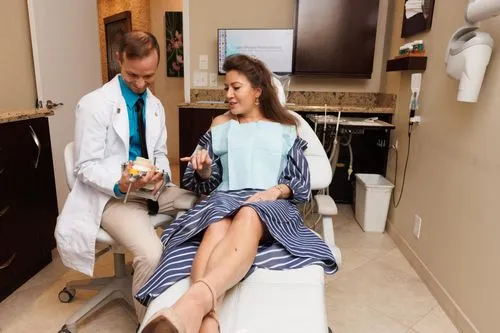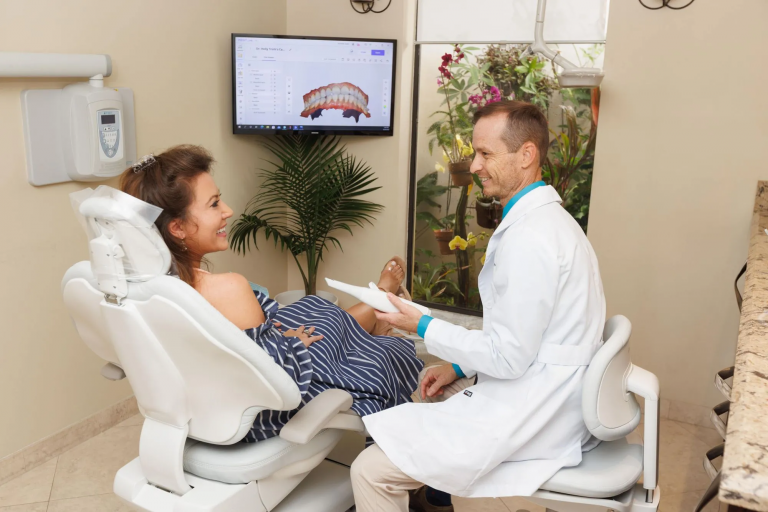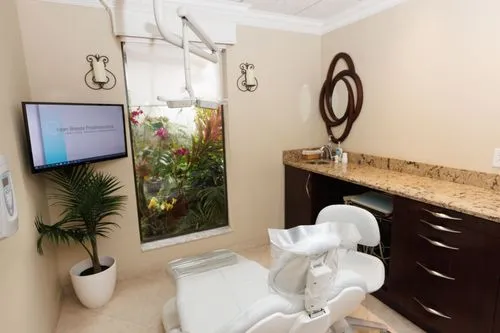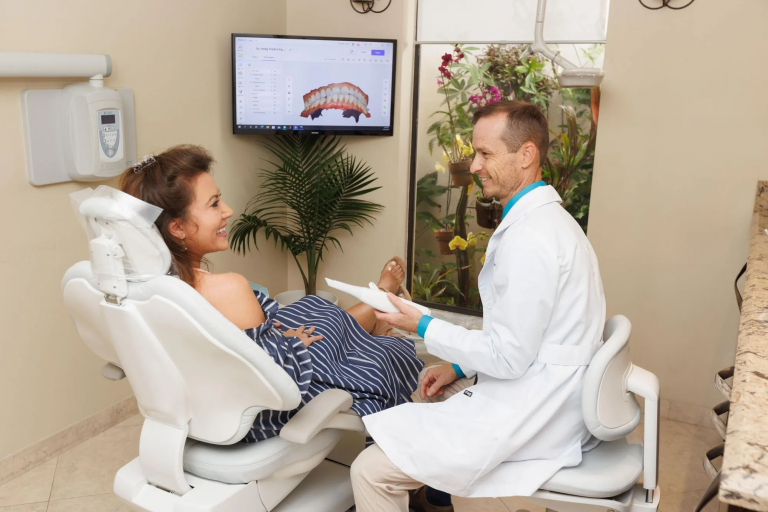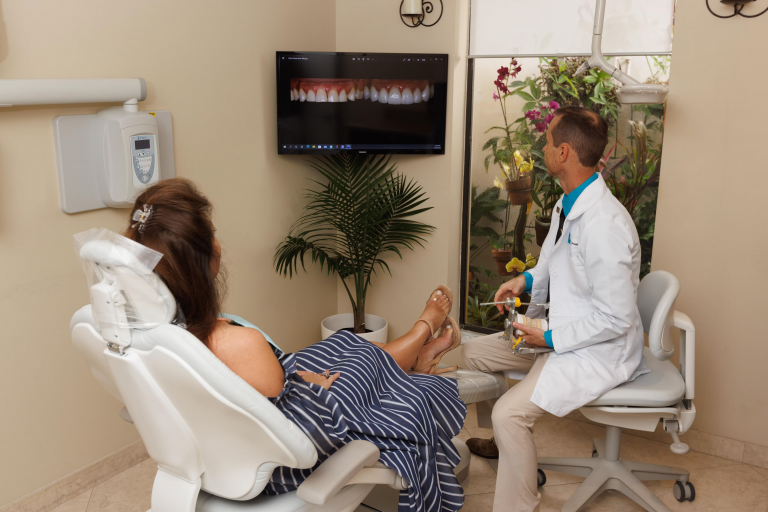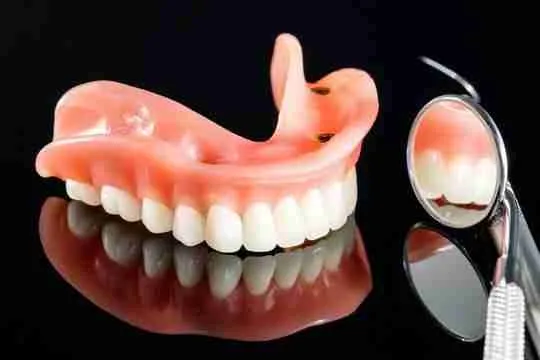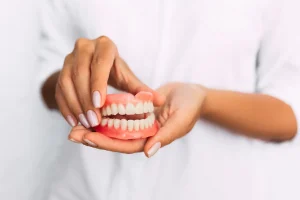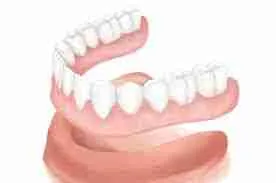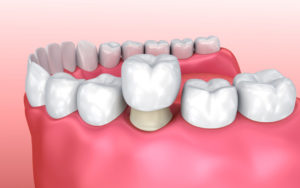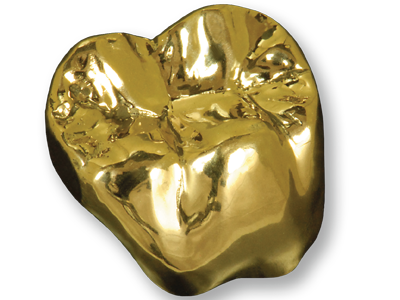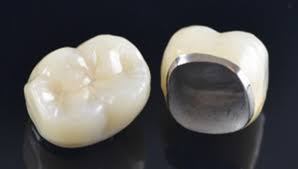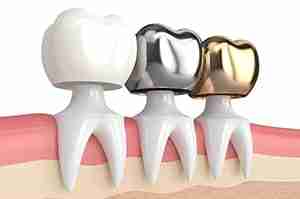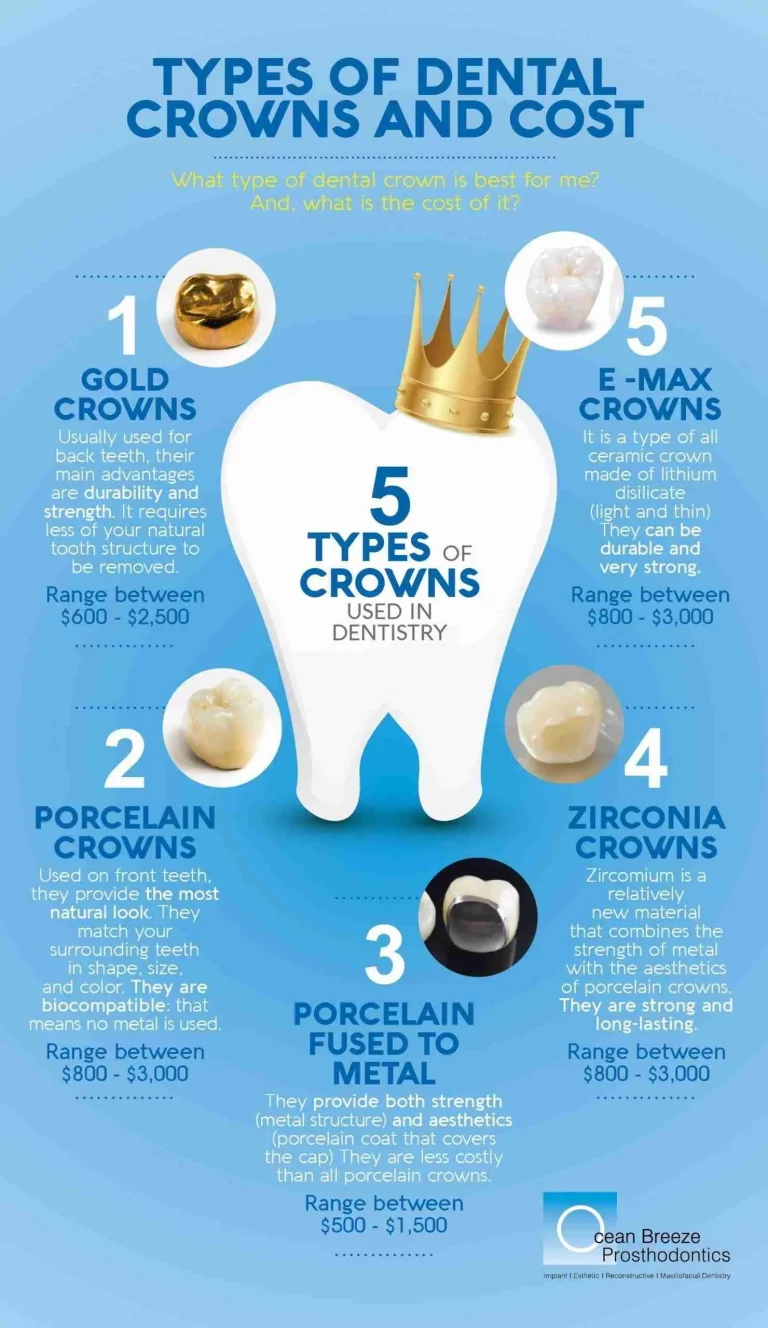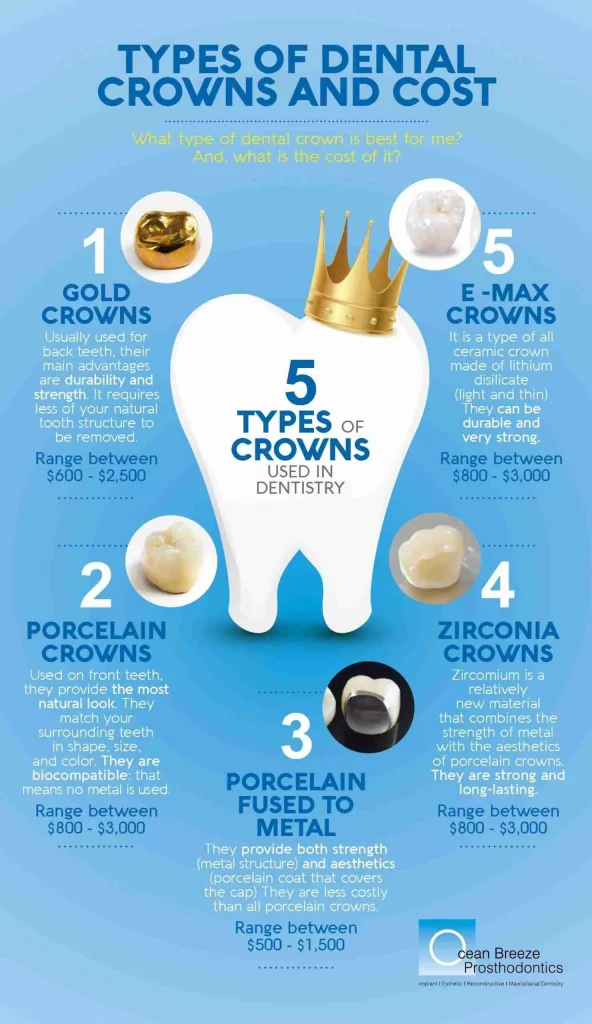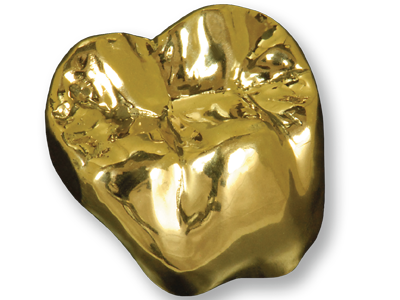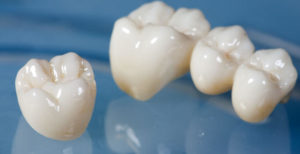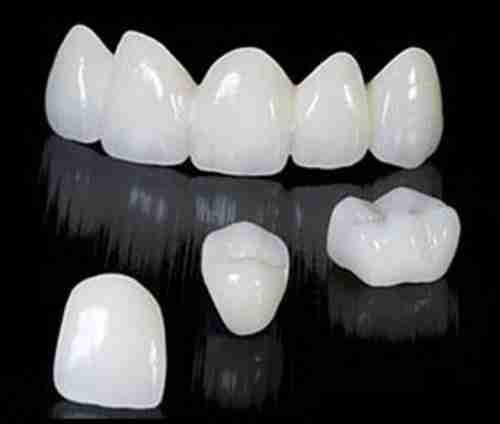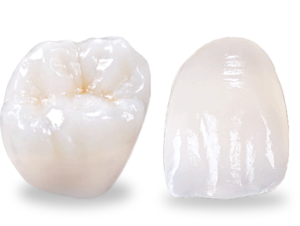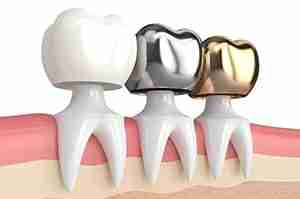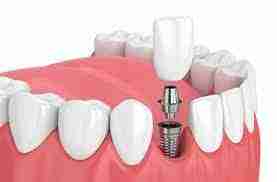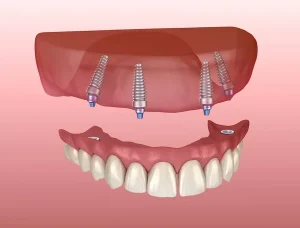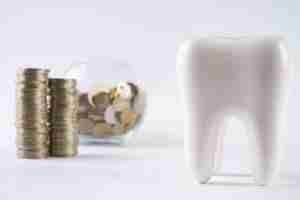The American Dental Association recognizes nine dental specialties within the area of dentistry: One of them is prosthodontics. So What Does a Prosthodontist Do? Here is a brief guide about what prosthodontists do as specialists that restore and replace missing teeth.
According to the ADA’s website, prosthodontics is “the dental specialty pertaining to the diagnosis, treatment planning, rehabilitation and maintenance of the oral function, comfort, appearance and health of patients with clinical conditions associated with missing or deficient teeth and/or oral and maxillofacial tissues using biocompatible substitutes”.
In other words, when we talk about Prosthodontists we refer to an expert who can handle dental treatments involving prostheses or restorations.
This post will help you understand what a Prosthodontist is and when to contact one.
“Prosthodontist”: What Does it Mean?

The term “prostho” means replacement and “dontist” means dealing with teeth. Prosthodontists specialize in treating and handling dental and facial problems that involve restoring and replacing missing teeth with artificial devices.
Basically, a Prosthodontist is highly trained in the placement of dental implants, crowns, bridges, dentures, all-on-4 implants, among other treatments.
Prosthodontists also specialize in cosmetic dentistry, which has grown in popularity over the last few years. These specialized dentists have a careful understanding of the dynamics of a smile and the preservation of a healthy mouth.
What is the Difference Between a General Dentist and a Prosthodontist?
People sometimes are not sure about the difference between a general dentist and a prosthodontist. The truth is, that although a Prosthodontist and a general dentist sometimes perform the same procedures, there is quite a difference in what they can do, as well as their training.
From the get go, the main difference is that prosthodontists have a more advanced professional training, and treat more complex procedures than general dentist. General dentists handle all types of routine dental care and minor dental procedures, like tooth decay, broken or chipped teeth, dental fillings, cleanings general checkups, though they also place crowns, bridges and dentures.
Prosthodontists come in scene when treatments are more complex. Because they have completed dental school and continued studying for at least three additional years of advanced training and education in an ADA-accredited program, prosthodontists looks at the mouth in a more systemic, integrated way. They tend to handle more complax cases. In other words, general dentists tend to refer to prosthodontist cases where they can’t or won’t do.
Bottom line, consulting with and receiving treatment from a Prosthodontist guarantees that you obtain high-quality, efficient treatment that meets your needs and produces long-term solutions for your appearance when you require tooth replacement or oral surgery.
What Does a Prosthodontist Specialize In?
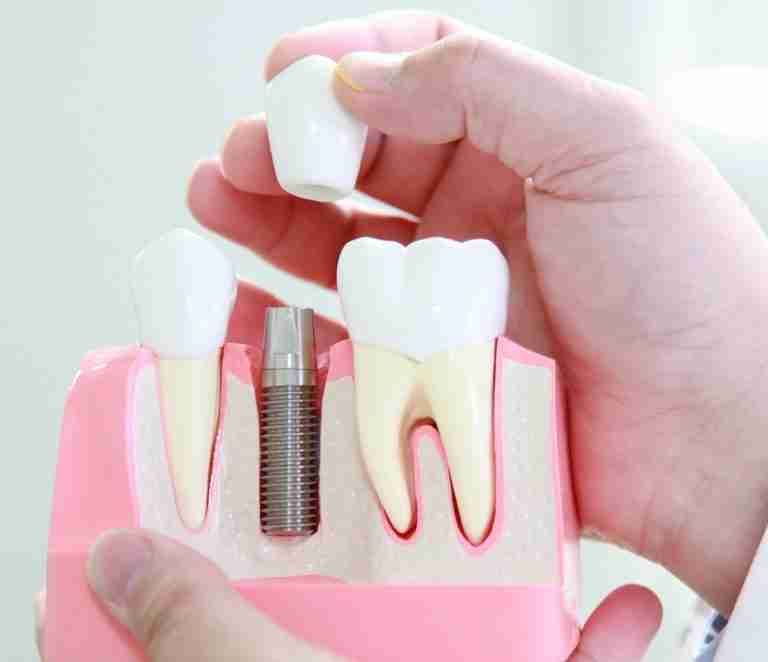
A Prosthodontist is referred to as an “oral architect” . He or she is THE expert when teeth or gums need to be replaced in the mouth.
Prosthodontists are highly skilled in prosthetics and restorations. Their job is to design, manufacture and fit any type of restorative prosthetics for patients with damaged or missing teeth.
Prosthodontic dentistry generally deals with severe dental cases like jaw surgery, partial dentures, full dentures, implants, and more. They also diagnose and treat patients with fillings, dentures, crowns, veneers, implants, bridges, splints, night guards, and cosmetic procedures. Depending on the case, a Prosthodontist can replace or restore a single tooth, multiple teeth, and damaged gum and jaw tissue as well.
Prosthodontists also have the skills necessary to treat sleep apnea, snoring disorders, and cleft palates.
Prosthodontists have the expertise to restore a patient’s mouth in the most functional and aesthetic way. They not only deal with those general routine procedures, but also with more complex restorative procedures such as:
- dental implants
- dental crowns
- bridges
- full or partial dentures
- oral surgery (eg. implant surgery)
- TMJ treatment
What Procedures Does a Prosthodontist Do?
Thanks to Prosthodontists’ specialized training, experience, and equipment, general dentists commonly refer them to patients when they need to replace lost teeth.
Prosthodontists work closely with dental technicians to make sure that each custom-made prosthesis looks good and feels comfortable for the patient.
Some of the Most Common Procedures Performed by Prosthodontists Are:
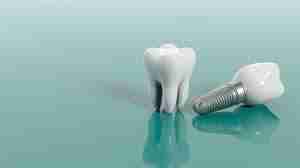
Implants
Metal posts or frames implanted into your jawbone to allow a crown to fit on this post. The cap placed on the implant will look and function as a natural tooth.
Crowns
Crowns are caps placed on a tooth or implant to look and function as a natural tooth. There are many types of dental crowns according to different needs.
Bridges
Where there are teeth missing, a bridge can restore and replace those missing teeth. Typically they take the form of crowns on either side of the missing tooth, and they hold the “pontic” (or false) tooth.
Full Mouth Reconstruction
In cases where patients need to reconstruct their smile on a larger scale, many different restorative options are available to fully reconstruct their mouth.
Dentures
Acrylic base prosthesis placed over gums when a full or partial set of teeth are missing. They can be removable or fixed, partial or full.
Veneers
A thin piece of porcelain layer used to provide your mouth with a natural look, and give them strength. Veneers are placed and fixed on the damaged tooth’s enamel.
Jaw Treatment
Treatment of jaw bones and tissues due to TMJ (temporomandibular joint) disorders, or other causes of pain.
Dental Surgery
Dental and Maxillofacial surgeries needed due to birth defects, problems resulting from cancer or traumatic injuries.
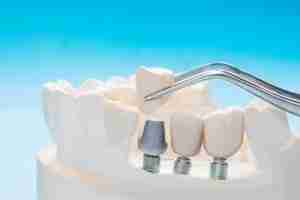
What is a Maxillofacial Prosthodontist?
According to the American Academy of Maxillofacial Prosthetics, a maxillofacial prosthodontist is a specialist who can treat patients who needrehabilitation of patients with defects or disabilities that were present when born or developed due to disease or trauma.dental problems that concern missing teeth and its surrounding tissues.They also perform treatments that involve a damaged jaw structure.
Prosthodontics vs. Cosmetic Dentistry: What’s the Difference?
A general dentist can easily perform cosmetic treatments to patients who want to improve their smile and oral appearance.
However, cosmetic dentistry isn’t a subspecialty that’s recognized by the ADA. Instead, it’s an approach to treatment that considers both the appearance and function of the dental work you need.
If a dentist wants to carry out cosmetic treatments, they can take training courses on cosmetic dentistry at the American Academy of Cosmetic Dentistry, for example.
Prosthodontists, on the other hand, receive formal training on cosmetic dentistry in their specialization. As a result, they will focus on the “cosmetic” aspect of the treatment, since it is an essential part of their job.
To be more specific, part of their job is that the artificial parts they use, perfectly match with the surrounding oral environment while remaining functional and comfortable.
A good restoration will not only make your teeth function well. It will also make your teeth look perfectly natural in shape, size and color, giving you a perfect smile.
So Prosthodontists can perform general, cosmetic and prosthodontic (restorative/reconstructive) procedures in the most accurate and precise way due to their specialized training.
When Do you Need a Prosthodontist?
You should have general check-ups at your dental office every six months to keep your mouth and teeth healthy. However, it is crucial that you contact a Prosthodontist when:
- you have missing teeth, or have suffered tooth loss
- your damaged teeth need to be replaced
- You need to restore the root of your missing or damaged teeth with implants
- you need to maintain or fix prosthetic devices (eg. dentures)
- You´re having problems with your jaw (TMJ disorders)
- You want to address sleep or snoring disorders
- You want to renew your smile, not only to make it more beautiful, but also functional.
- When you have other complex dental conditions arising from cancer treatments, traumatic injuries or birth defects.
Benefits of Seeing a Prosthodontist
- A Prosthodontist knows exactly how to deal with the replacement and restoration of missing teeth. They also have the knowledge to make them look perfectly natural.
- Choosing a Prosthodontist as your dental care provider is a benefit since many Prosthodontists also provide general dentistry services like checkups and cleanings. By selecting one of these doctors as your primary oral healthcare provider, you can be relaxed and sure that you have a solid relationship with a reliable specialist in case you require more advanced services.
- A Prosthodontist knows exactly how to make your teeth get their usual normal functions. Your teeth not only need to look good, but function well. That’s why aligning the bite is so important, something that usually only prosthodontists can perform.
- When you entrust your care to someone with advanced training, you increase the likelihood that your treatment will go smoothly and without complications from start to finish.
- With improved gums, bite and smile, your whole body health (and self-esteem) will benefit. You’ll chew better, enjoy your meals and look amazing.
As the American College of Prosthodontists puts it: “Everyone can enjoy the confidence, fullness of life, and overall well-being that comes from a healthy mouth and an attractive smile.”
So remember, if you are dealing with major problems such as damaged or missing teeth, you need to restore the function of your mouth or bite or you need any kind of mouth reconstrution, the best option is always to see a Prostodotist. Due to their training and expertise, they are the right specilists who will best deal with your oral care.

